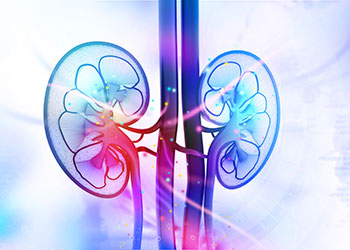
Glomerulonephritis (GN) is a group of rare kidney diseases that has a high risk of progression to kidney failure, resulting in substantial comorbidity to patients and high costs to the health care system.
Dr Sean Barbour, a Nephrologist at Vancouver General Hospital and Assistant Professor at UBC’s Faculty of Medicine, believes that there is currently a lack of understanding of clinical outcomes and health care utilization of patients with glomerulonephritis.
“No standardized mechanism exists in BC, or any other Canadian province, to capture clinical outcomes or health care utilization of these patients,” says Dr Barbour. “This lack of information prevents the evaluation of health outcomes and the development of policies that may improve the care and/or reduce the health costs for this population.”
Data access has been approved for a research project, funded by the BC Provincial Renal Agency and the Kidney Foundation of Canada, to describe the provincial incidence rates and experience with GN over the last 12 years by linking existing administrative datasets. These results will both describe variability in management and clinical outcomes of GN patients and indicate ‘gaps’ where additional data is needed.
“We hope that the project will provide the critical background data necessary to shape and develop a BC GN Registry, the first Canadian province-wide registry to collect robust, ongoing, real-time data on all GN patients in BC. Such a Registry will support future clinical outcome and health services research necessary to improve patient care,” says Dr Barbour.
PopData will link data from the BC Ministry of Health, BC Vital Statistics Agency, Statistics Canada, Citizenship and Immigration Canada, the BC Cancer Agency, the BC Provincial Blood Coordinating Office, the BC Provincial Renal Agency, Cardiac Services BC, and BC health authorities with researcher-collected data from the BC Pathology Lab at St Paul’s Hospital.